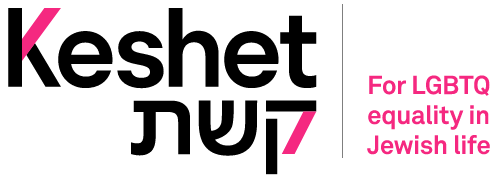Welcome, Friend!
וַיֵּצֵ֨א מֹשֶׁ֜ה לִקְרַ֣את חֹֽתְנ֗וֹ וַיִּשְׁתַּ֙חוּ֙ וַיִּשַּׁק־ל֔וֹ וַיִּשְׁאֲל֥וּ אִישׁ־לְרֵעֵ֖הוּ לְשָׁל֑וֹם וַיָּבֹ֖אוּ הָאֹֽהֱלָה׃
Moses went out to meet his father-in-law; he bowed low and kissed him;
each asked after the other’s welfare, and they went into the tent.
This week’s parasha describes the powerful, awe-inspiring, and jaw dropping experience of Revelation - Moshe receiving the Aseret Ha Dibrot, the Ten Commandments, at Mount Sinai. The ground shakes; lightening, thunder, smoke and shofar blasts surround the community. Only 3 months before that moment, the Israelites had believed that Egypt and slavery was all they would ever know. It must have been exhilarating and exhausting to realize that they finally had made it through the Sea of Reeds and arrived at Mount Sinai, where they would encounter God’s Torah.
Immediately before the event on Sinai, the Torah describes a much more ordinary and intimate meeting at Moses’ tent. Yitro, Moses’ father-in-law, a Midianite Priest, the father of Moses’ wife Tzipporah, and grandfather of Gershom and Eliezer, “heard all that God had done for Moses and for Israel, God’s people” at the Sea of Reeds. So he,Tzipporah, Gershom, and Eliezer made the trek to the Israelite encampment to see Moses. That is where Moses goes out and greets them, and where the parasha begins.
Several thoughts stand out to me with this juxtaposition of stories. While I’m sure I knew this at one time, I had forgotten that Moses’ family was not with him during the Exodus from Egypt! I find it incredible that Moses’ family did not experience the Israelite’s redemptive moment, even though they were an integral part of the family. Yet, later, they experienced the revelation at Mt. Sinai - when God revealed God’s “Torah” to the Israelites. So I wonder what it must have been like for Moses to leave Egypt with his fellow Israelites; to have experienced together with his people, something quite profound, both liberating and traumatic, and then greet family who couldn’t possibly imagine or relate to what he had experienced. It seems to me it could have gone in one of two ways: Moses could have broken off his relationship with his family, or he could embrace it. Moses, at this time, chose to embrace it. Clearly he did not cast his family out, and instead brought them into his home.
In a meeting last night, a group of TBE members and I were discussing what it feels like to be in a welcoming, embracing community. The group was asked to think about being fully welcomed as an outsider or newcomer. “The greeting is important,” they answered. But not just any greeting - “A greeting where someone is genuinely interested in who you are, and seem happy to see you rather than skeptical of your presence is welcoming” “Truly honoring the other person, no matter where they are from or who they are is essential.”
I was thinking about last night’s conversation as I read the parasha today. After his intense experience at the Sea of Reeds, Moses might have been dubious about seeing his Midianite family; after only hearing about it, Yitro might have felt uncomfortable and worried about seeing Moses. Instead, Moses goes out to greet Yitro as soon as he arrives., The rabbis see this as an act of humility, since people typically would come to Moses rather than him going out to them. He bows to his father-in-law and kisses him. The text then says, “and they asked, human to neighbor, about their
shalom, their well being, and finally entered the tent. It didn’t matter that they came from different backgrounds and situations. It didn’t matter that they hadn’t together experienced such a life changing moment as the Exodus. What mattered was that they were together.
Let’s imagine that our synagogue is our tent, with people coming to us from many different backgrounds. Like Yitro and his family, some have chosen to affiliate with us and retain other religious identities. Some are Jewish, but have never experienced TBE Judaism. Some have been with us from almost the beginning, yet feel like so much has changed over the years that they barely recognize it. Some are looking to see what Judaism is all about, and some are here quite a bit and feel at home. Moses gives us a great example of what it means to be welcoming and how we too can go out to greet our visitors. How we might engage one another in real conversation, and help them to feel comfortable even when we haven’t shared the same, profound experiences. I am so looking forward to the time when we can welcome each other in person!
Shabbat Shalom.



